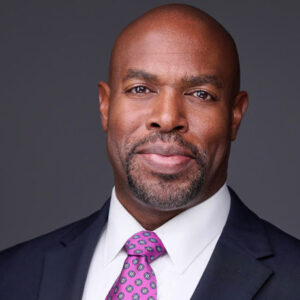
We love Montessori conferences!
We love Montessori conferences!
Yours, ours, everyone’s!
April 1, 2024
We run a list of upcoming events on the back page of our MontessoriPublic newspaper (send us your information for next year!). Last fall, the North Carolina, Indiana, Wisconsin, and Georgia listed conferences, along with national gatherings from the International Montessori Council (IMC), and the Montessori Accreditation Council for Teacher Education (MACTE). Winter 2024 included events from Massachusetts, the University of Wisconsin, and Illinois. And, of course, February and March bring two big annual events: the Association Montessori International-USA’s Experience and the American Montessori Society’s Event, respectively. NCMPS staff have presented at most of these events; we are always excited and proud to share our work with as many people as possible.
In April, we will host the second NCMPS Public Montessori Conference and Retreat. Undertaking a conference is a big and risky lift, so we asked ourselves, with so many conferences on the calendar, why one more? What’s special about a public Montessori conference—what need does it serve?
We go to conferences to learn and share. To find out what’s new. To connect with old friends and to make new ones. To get away from our regular school routine and return reinvigorated. And, perhaps most of all, to be with others who have the same experiences we do, folk who might otherwise be few and far between. Conferences provide an environment for us to feel part of something bigger than ourselves.
At most Montessori conferences, that something is Montessori. The experience of being with others who share this transformative, liberatory understanding of human development and potential is exhilarating.
For Montessorians working in public settings, these conferences can be both exhilarating and a bit isolating. Everyone around us is committed to the same view of childhood and approach to learning that we are, but not everyone is manifesting this view and implementing this approach within the context of large bureaucratic systems, required curriculum, district and state mandates, and public scrutiny. Many public Montessori schools are one-of-a-kind in their districts or regions. Even when we are fortunate, entrepreneurial, and collaborative enough to have other public Montessori schools in our area, we are still the outliers, proving our worth as we swim upstream against the flow of the system.
NCMPS acknowledges, validates, and supports the lived experiences, needs, and practice of Montessorians working in public schools – and all that these elements entail. Two years ago, we held our first Public Montessori Conference and Retreat to create a setting where working within the demands of the public sector was a commonality rather than a differentiator; to create a shared time that could have all of the exhilaration of shared purpose with none of the isolation. Nearly 200 public Montessorians gathered to present, learn, and be together in the first public-focused conference in a long, long time. The learning was powerful, and the camaraderie was incredible. We knew we had to do it again.
As I write this, we’re less than a month away from our second Conference, and I am confident in saying it will be a fantastic weekend. How could it not be when you are the community we are convening? Whether at the Conference, in online courses, on school visits, or through your emails, articles, and video calls, thank you for sharing your time, wisdom, friendship, and energy. When we are walking hand-in-hand in learning and love, dreaming and daring, there is no stopping what we can achieve. We are part of something bigger than ourselves, and I am honored to be with you in this work for a collective future.
Update from the E.D: The Conference was a success! You can see some photos and memories here

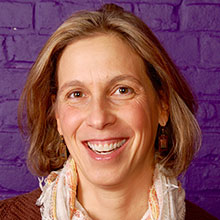
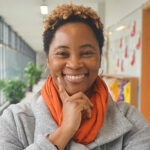
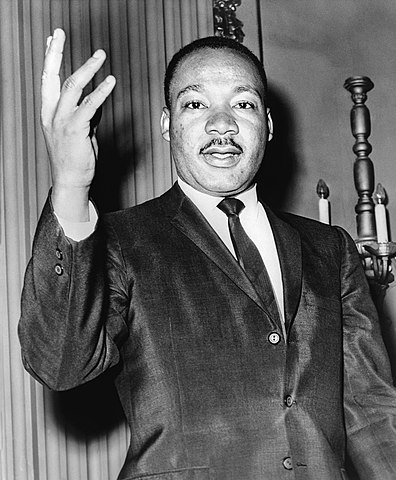




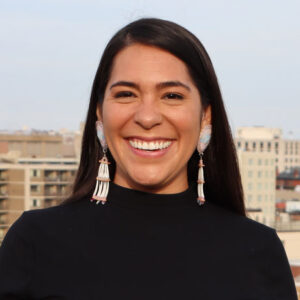 Cheyenne is a Seminole and Chilean woman, advocate for Indigenous people and a former Miss Indian World. She has utilized her platform as an ambassador to advocate for environmental protections of the Florida Everglades, overturn adverse stereotypes and stigmatizations of mental health in tribal communities, encourage healing through identity and self love, and combat the negative, stereotypical narrative of Native and Indigenous people through education.
Cheyenne also provides motivational speaking presentations, empowerment workshops, pageantry coaching, cultural and historical consulting, hosts and emcees, and presents on topics such as culture as prevention, identity, human trafficking, domestic violence, and much more. She strives for authenticity and to live a healthy life physically, mentally and spiritually through her culture and teachings.
Cheyenne is a Seminole and Chilean woman, advocate for Indigenous people and a former Miss Indian World. She has utilized her platform as an ambassador to advocate for environmental protections of the Florida Everglades, overturn adverse stereotypes and stigmatizations of mental health in tribal communities, encourage healing through identity and self love, and combat the negative, stereotypical narrative of Native and Indigenous people through education.
Cheyenne also provides motivational speaking presentations, empowerment workshops, pageantry coaching, cultural and historical consulting, hosts and emcees, and presents on topics such as culture as prevention, identity, human trafficking, domestic violence, and much more. She strives for authenticity and to live a healthy life physically, mentally and spiritually through her culture and teachings. 